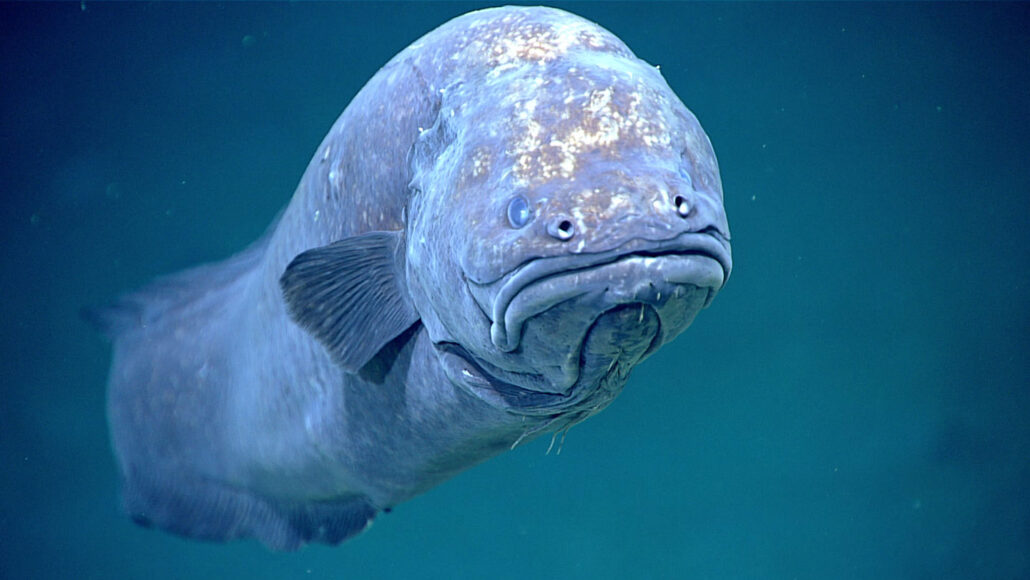Questions for ‘Sea creatures’ fishy scent protects them from deep-sea high pressures’

This particularly grumpy-looking ophidiiform cusk eel had its picture snapped at a depth of 1,585 meters (5,200 feet). Its tissues hold a crucial chemical that enables it and other deep-sea fish to endure extreme underwater pressures.
NOAA Office of Ocean Exploration and Research/Gulf of Mexico 2017